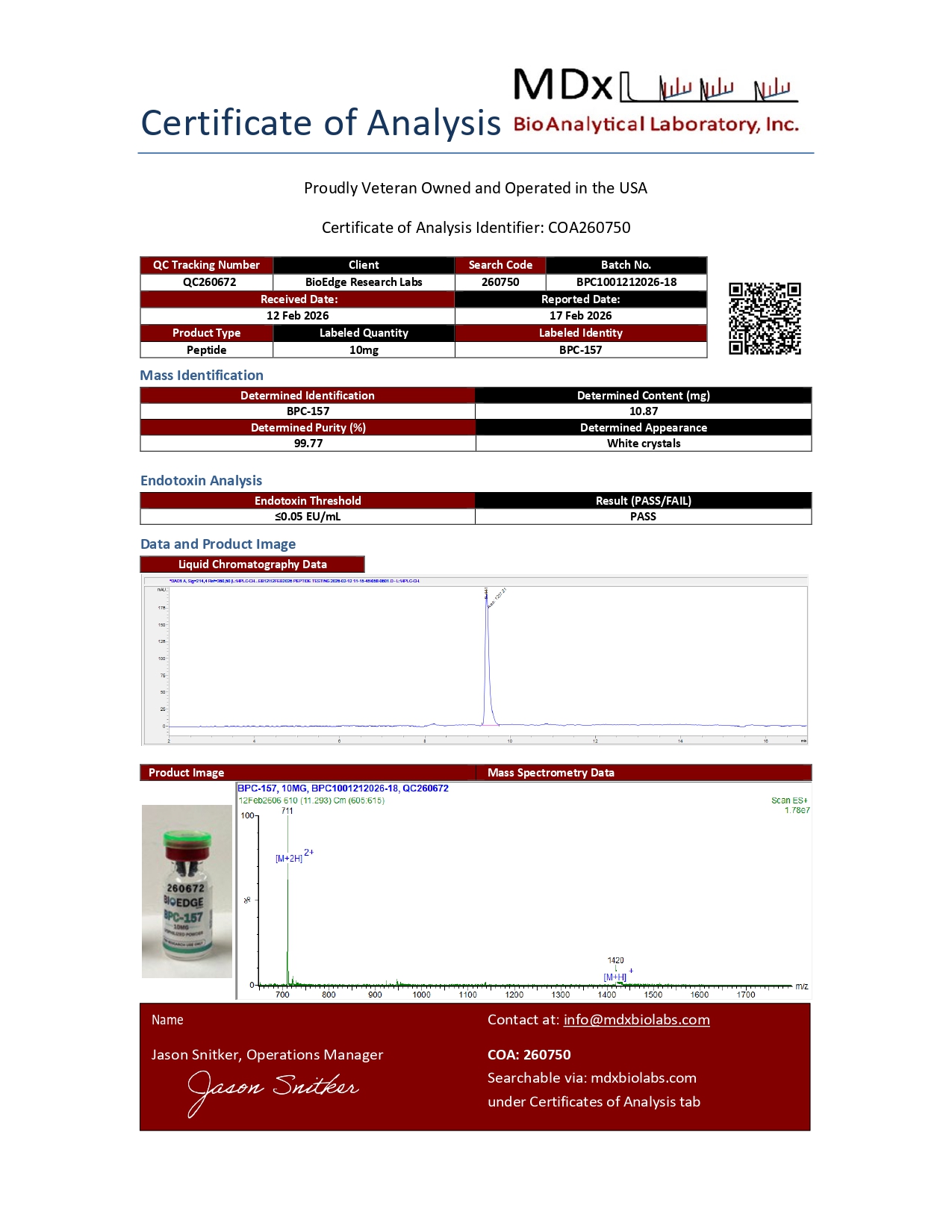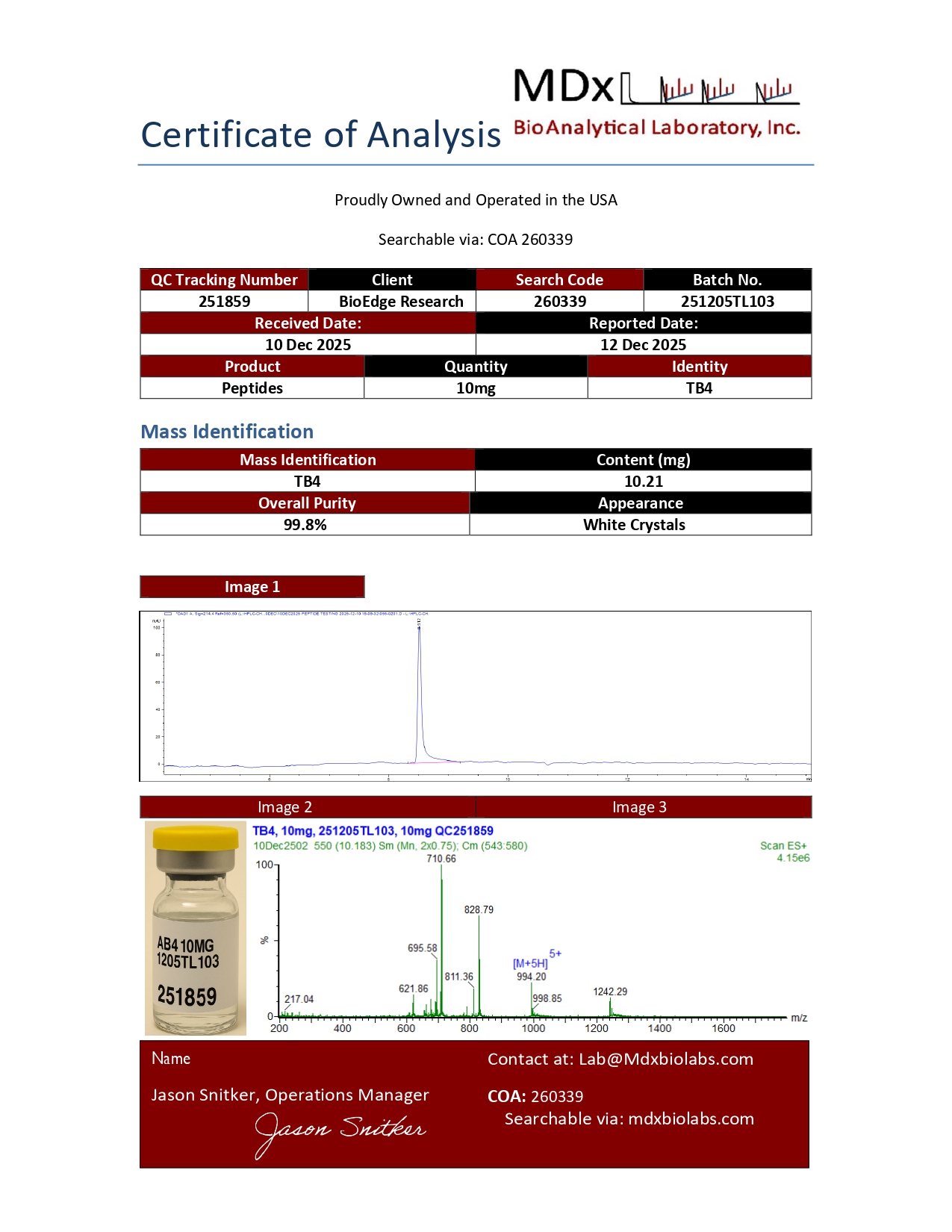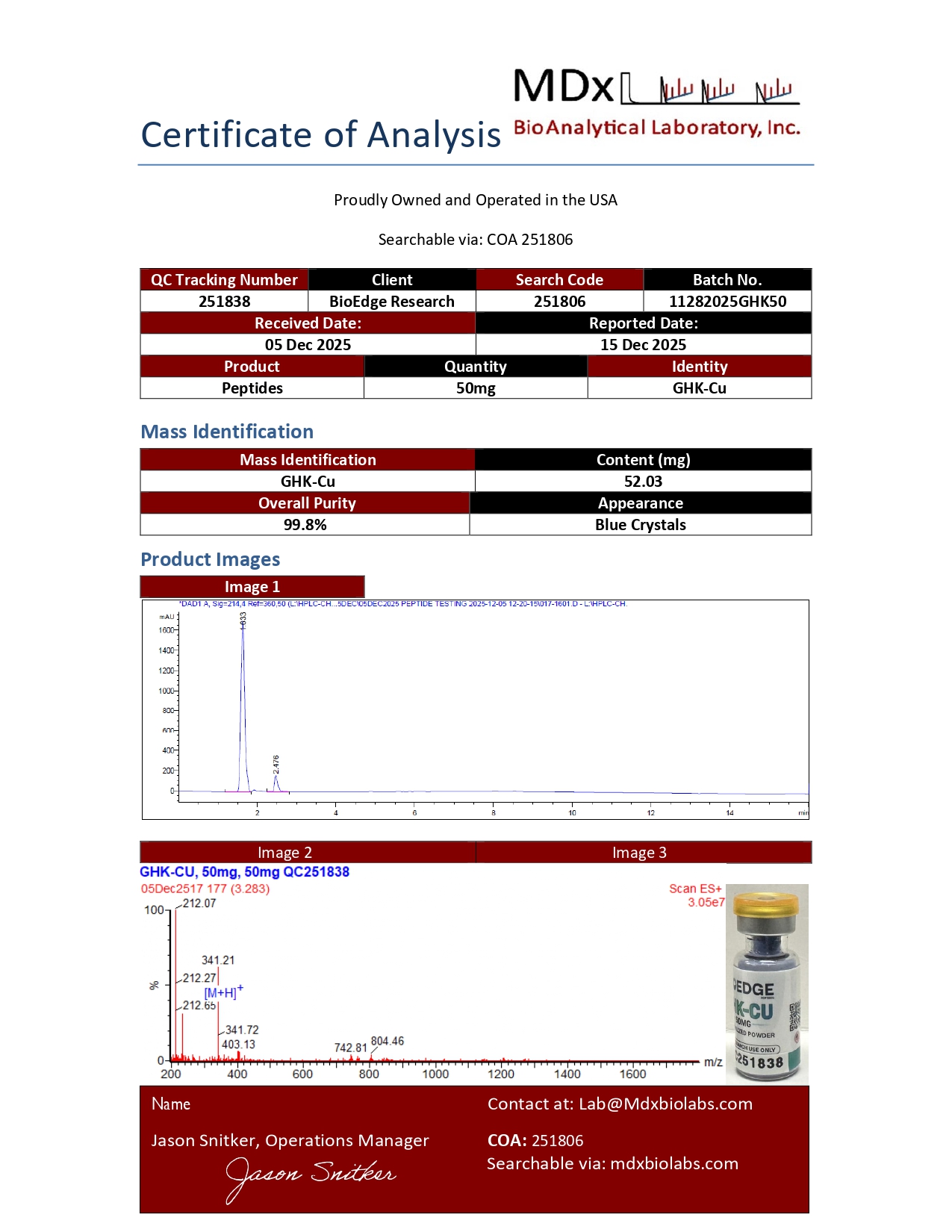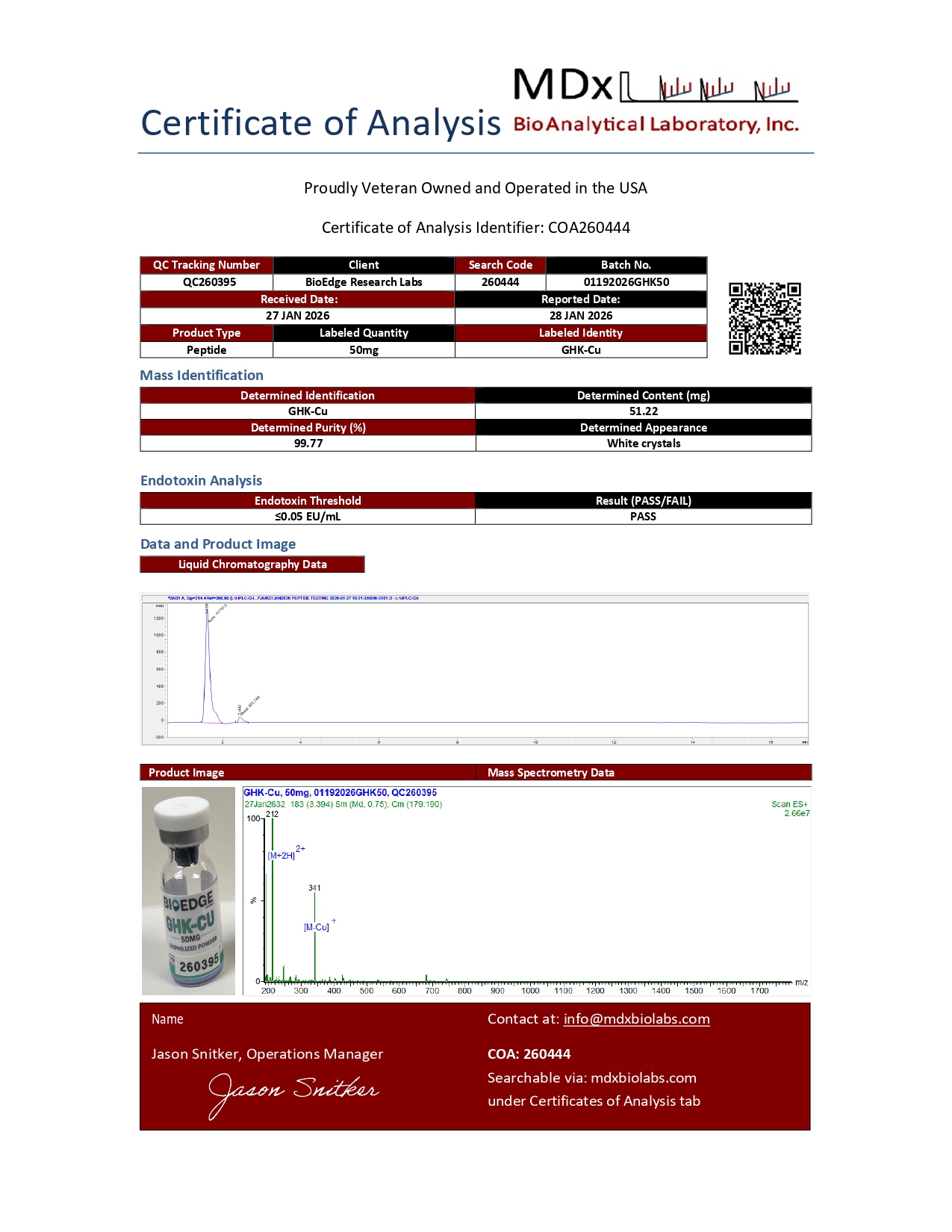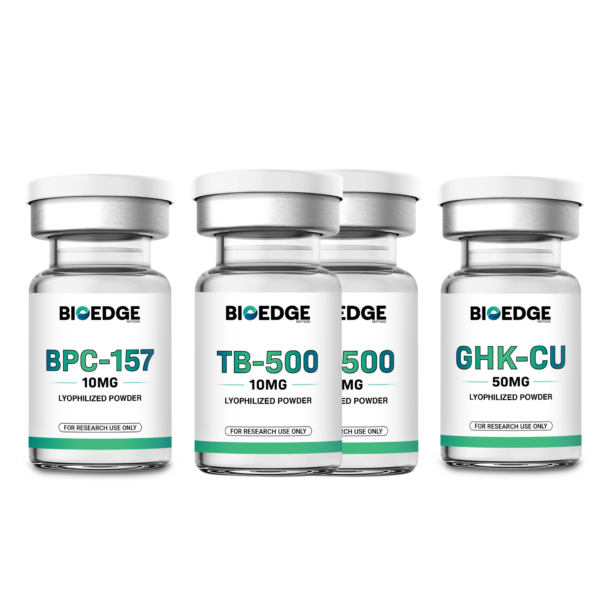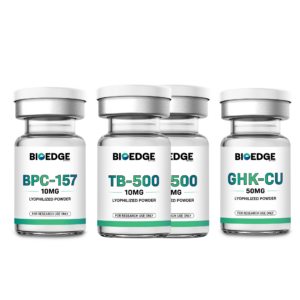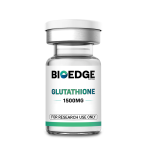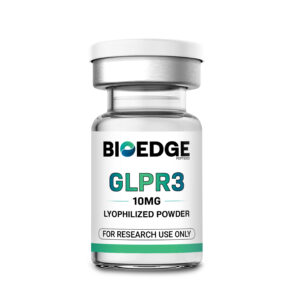-15%
BPC-157, TB-500 and GHK-Cu (GLOW)
Original price was: $285.00.$242.00Current price is: $242.00.

BPC-157 (10mg)
Original price was: $65.00.$59.00Current price is: $59.00.
1
+

TB-500 (10mg)
Original price was: $98.00.$88.00Current price is: $88.00.
2
+
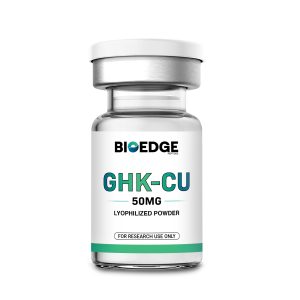
GHK - CU - 50mg
Original price was: $54.00.$50.00Current price is: $50.00.
1
- Description
- 3rd Party Lab Testing
Description
BPC-157 + TB-500 + GHK-Cu — Multi-Supply Pack
This multi-supply pack contains multiple peptide products provided as lyophilized research materials for laboratory workflows requiring parallel compound handling, analytical verification, and in vitro assay development across multiple peptide targets.
Product Specifications
| Pack Type | Multi-supply pack (multiple peptide products included) |
| Products Included | BPC-157 + TB-500 + GHK-Cu |
| Contents | BPC-157 (10mg) + TB-500 (2 × 10mg) + GHK-Cu (50mg) |
| Purity | ≥99% (HPLC verified) |
| Form | Lyophilized powder |
| Appearance | White to off-white powder |
Research Applications
- Parallel peptide screening workflows in multi-condition in vitro study design
- Cell migration and cytoskeletal dynamics assays using standardized culture conditions
- Extracellular matrix (ECM) interaction and remodeling studies in fibroblast-based assay systems
- Peptide stability testing and degradation profiling using HPLC and LC-MS analytical methods
- Oxidative stress pathway screening and comparative signal-response mapping in cell culture models
Quality Documentation
Certificate of Analysis and HPLC chromatogram available for each lot.
For Laboratory Research Use Only
This product is intended exclusively for in vitro laboratory research. Not for human or veterinary use. Not for diagnostic, therapeutic, or clinical applications.
